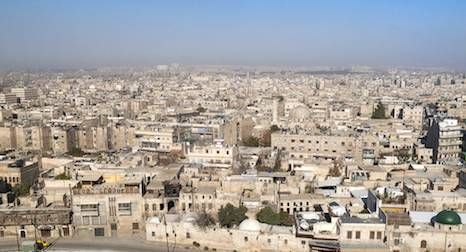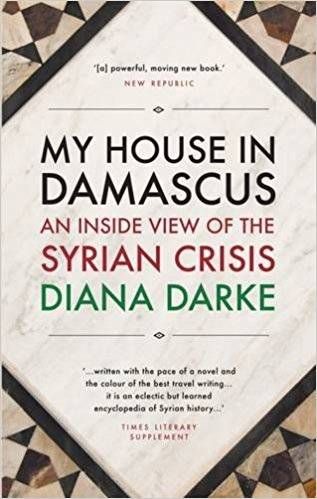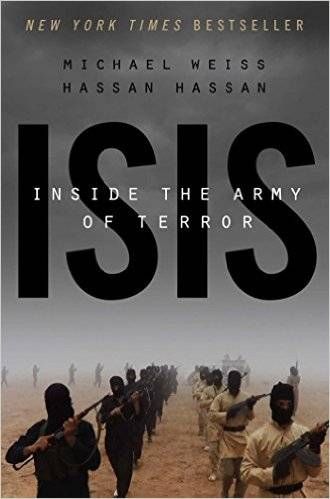
5 Books About Syria, the Greatest Humanitarian Tragedy of Our Time
Syria is the greatest humanitarian tragedy of our time. Around half a million people have been killed in the civil war that began as a peaceful uprising against the iron-fisted dictatorship of Bashar al-Assad, and half the country’s population has been displaced. It spurred a massive refugee crisis – around 3 million Syrians have fled to Turkey, and 1 million have taken refuge in neighboring Lebanon, and hundreds of thousands made the trek by boat and land to the safer climes of Europe and beyond.
The war has transformed the Middle East, and has become a battleground for competing powers in the region like Iran, Saudi Arabia and Turkey, as well as the United States and Russia. It spawned the Islamic State terror group (ISIS or ISIL), the most brutal militant group in recent history, which has killed thousands in Iraq and Syria as well as carrying out terrorist attacks in Europe, the US and the rest of the world. Chemical weapons like sarin gas, mustard agent and chlorine have been used by the government and ISIS, starvation sieges continue to test the laws of warfare that were meant to preserve our humanity, and barrel bombs filled with explosives have been dropped on civilian homes, markets, bakeries, schools and mosques. Hospitals have been bombed with impunity, and the brutality of war and the suffering in refugee camps will scar future generations.
I’ve covered Syria for my newspaper, the Guardian, for the last two and a half years. I visited the country recently to cover the latest chemical attack in April of this year. It’s an awfully complicated war, but to begin to grasp its threads, I’ve put together a list of books that can help you make sense of it. I’m still working my way through my pile of books about Syria, so I will have another list of recommendations for you in the next couple of weeks, that will include more fiction. For now, here are five books about Syria to get you started on understanding one of the most brutal conflicts of recent memory.
Burning Country
This book by the Syrian writers Robin Yassin-Kassab and Leila Shami is a concise and powerful depiction of Syria’s recent history, the inequities and oppression that planted the seeds for revolution, and how the uprising was sparked in the city of Deraa when teenagers who scrawled and anti-government slogan on the wall were detained and tortured.
 My House in Damascus by Diana Darke
My House in Damascus by Diana Darke
This book by Diana Darke is probably the best thing I’ve read on Syria in recent years. The British journalist and travel writer (and fluent Arabic speaker) first traveled to Syria to document heritage sites, and quickly fell in love with the country and put all her savings into buying and renovating a house inside the walls of the Old City of Damascus. That house later became a home for refugees fleeing the war, and Darke’s human and beautiful description that goes into the country’s history and the war’s devastating impact on its people brings together the best elements of travel writing, political history and the pace of fiction novels.
A Line in the Sand by James Barr
After the first world war, France and Britain ruled the Levant, encompassing Syria, Lebanon, Palestine, Jordan and nearby territories as mandate powers of the League of Nations. This excellent book describes how western powers carved up the Middle East starting with the infamous Sykes-Picot agreement, artificial borders that lay the roots for regional wars for generations to come.
 Isis: Inside the Army of Terror by Michael Weiss and Hassan Hassan
Isis: Inside the Army of Terror by Michael Weiss and Hassan Hassan
I’ve recommended this book before, and it remains the best and most concise history of the emergence of the world’s most brutal terrorist organisation from the ashes of the insurgency in Iraq into an army that ruled vast territories across Iraq and Syria and hijacked the revolution. Isis is now on the verge of military defeat, ousted from its largest cities and returning to its roots as an insurgent movement, but it continues to sow terror in the region and abroad and the inequalities and brutality that led to its creation remain in place, and if they are not addressed we risk their return.
The Morning They Came For Us
This is a series of dispatches by the journalist Janine Di Giovanni, based on a number of visits to Syria early on to report on the war. It is told with tenderness and empathy, and captures some of the complex dynamics and the fears of Assad’s police state, and the view from Damascus as the country descended into war.
What other books about Syria do you recommend?
















